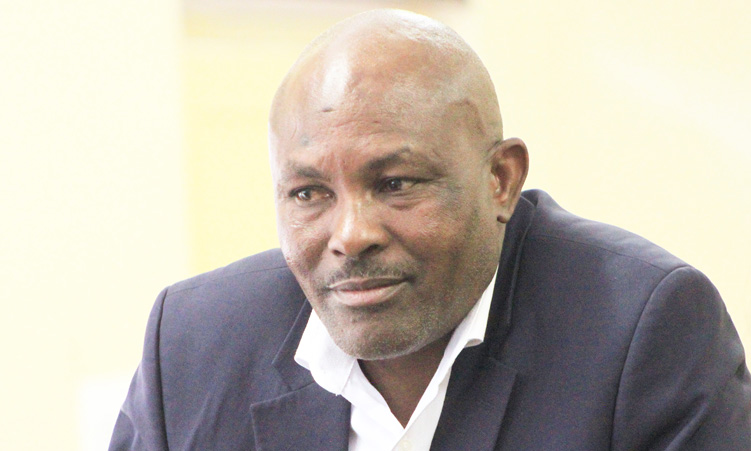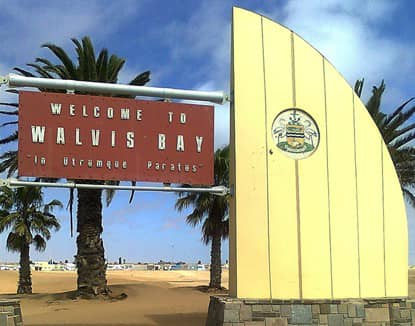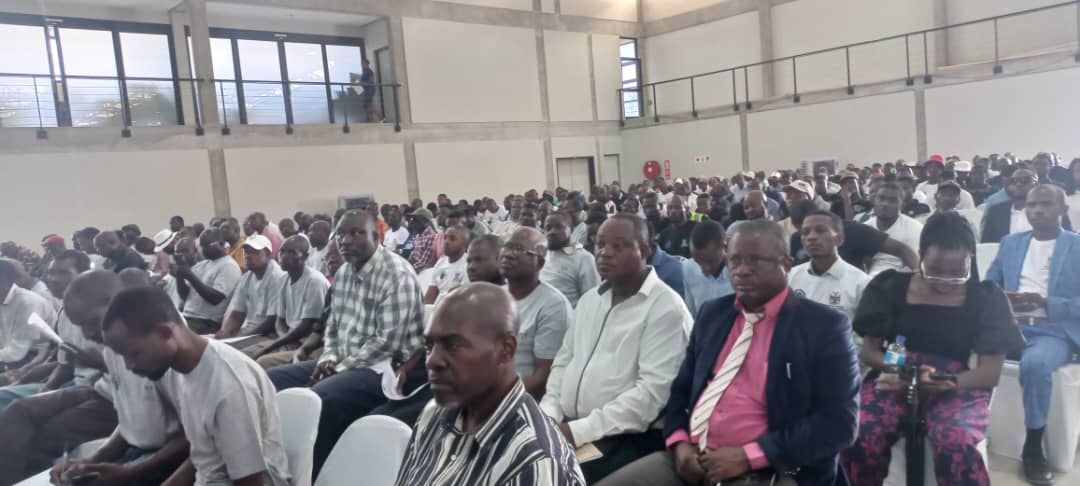A former police reservist convicted of trying to bribe an investigator in the Fishrot fraud, corruption and racketeering case was sent to prison for three years yesterday.
Magistrate Kandiwapa Nembia sentenced Sakaria Kokule (51) to five years’ imprisonment, of which two years are suspended for a period of five years, at the end of his trial in the Windhoek Magistrate’s Court.
Kokule has been in police custody for more than four and a half years following his arrest in January 2020.
He was found guilty of corruptly giving gratification to an Anti-Corruption Commission (ACC) investigator, which is an offence under the Anti-Corruption Act, and attempting to defeat or obstruct the course of justice a month ago.
Kokule, one of the key figures in the Fishrot case, James Hatuikulipi, and a third accused, Jason Iyambo, were all charged in connection with allegations that they tried to bribe an ACC officer, Junias Iipinge, in January 2020 by offering him N$250 000 to get him to hand evidence seized by the ACC over to them.
Iyambo pleaded guilty to a count of attempting to defeat or obstruct the course of justice in November 2020, and was sentenced to an effective jail term of nine months after that.
Although he made incriminating claims against Hatuikulipi and Kokule in a plea statement, Iyambo did not testify during their trial.
This resulted in his claims amounting to hearsay evidence against them and led to Hatuikulipi’s acquittal when Nembia delivered her verdict in their trial a month ago.
The evidence that Kokule tried to get from Iipinge consisted of bank cards issued to Hatuikulipi and a co-accused in the Fishrot case, Pius Mwatelulo, as well as a handwritten document.
The evidence was collected during the ACC’s investigation of alleged corruption, fraud and other offences connected to the procurement and use of Namibian fishing quotas.
During the sentencing yesterday, Nembia said it was aggravating that Kokule was in a position of trust as a police reservist when he undertook to help Iyambo get hold of evidence gathered by the ACC during the investigation of the Fishrot case.
Nembia recounted that Kokule approached Iipinge and also took Iyambo to the ACC investigator’s house.
However, Kokule was not present at Iipinge’s house when Iyambo went there intending to pay a bribe to get hold of the evidence seized by the ACC, the magistrate noted.
Kokule facilitated the transaction, knew who was asking for the bank cards, and the evidence showed he was in cahoots with Iyambo, Nembia said.
She said corruption is regarded as a serious crime for many reasons, including the fact that it is difficult to detect, erodes the moral tone of society, corrodes honesty and threatens democracy.
During the trial, Iipinge testified that he took part in a search of Hatuikulipi’s house on 13 December 2020.
During the search, bank cards were seized by ACC investigators, he said.
According to Iipinge, he received a phone call from Kokule the next day.
He said Kokule told him he had been approached by Iyambo, who said he had visited Hatuikulipi in custody and had been asked by him to approach Kokule to find a way to get the seized cards back.
Iipinge also said he was initially told by Iyambo that Hatuikulipi was willing to pay N$2 million for the seized bank cards.
Defence lawyer Jermaine Muchali represented Kokule during his trial.
The state was represented by Ian Malumani.
Stay informed with The Namibian – your source for credible journalism. Get in-depth reporting and opinions for
only N$85 a month. Invest in journalism, invest in democracy –
Subscribe Now!






